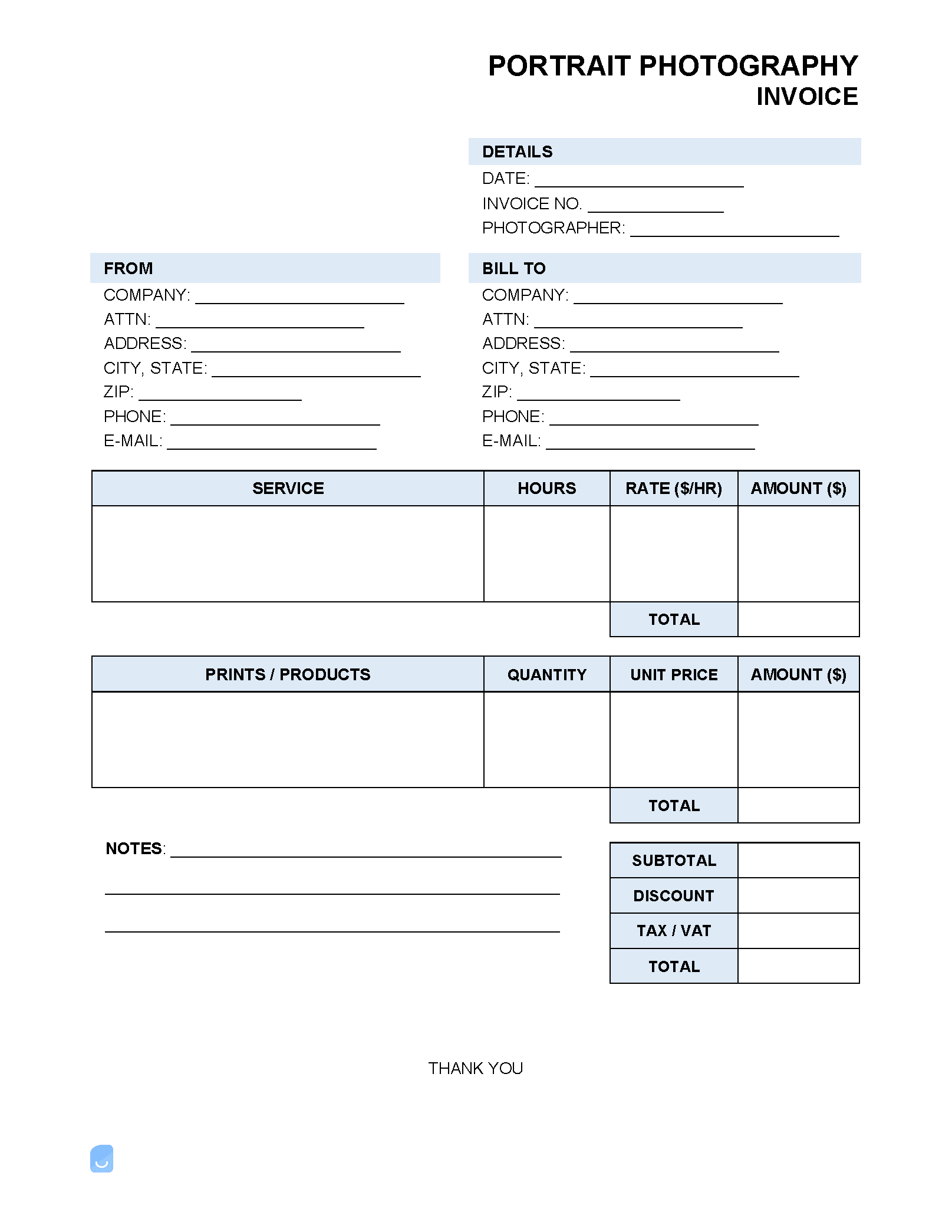Portrait Photography Invoice Template
A portrait photography invoice is a form used by part-time and professional photographers to charge clients for photo-sessions. For portraits, photographers typically charge on a per-hour or per-photo basis, with varying rates depending on the experience of the photographer, the equipment used, and the desirability of the photographer’s services.
What is Portrait Photography?
Portrait photography is a subset of photography that focuses on taking up-close pictures of people for artistic, social, or professional purposes. In school, for instance, students often have professional portraits taken for use in the school yearbook. Other uses include professional headshots for businesses and organizations. Also, artistic portraits taken to highlight the personality of an individual or the circumstances they are in, and family portraits are meant to capture a family at a certain time in their life.
Best Lens for Portrait Photography
Much like a painter selecting the right brush, choosing the correct lens for the shoot can make the difference between amateur-looking and professional photo portraits. The two (2) main types of lenses used for portraits are zoom and prime lenses. Zoom lenses allow the photographer to alter the focal length without switching out to a different lens. While more versatile than prime lenses, they often cannot out-perform the prime lens in its specific focal length. For those testing the waters with taking portraits, utilizing a zoom lens is recommended as it allows for experimentation, giving the photographer a chance to find the style that suits them. As for price, prime lenses are (typically) far more expensive than their zoom counterparts. In regards to focal lengths, the prime lenses that would most suit a portrait photographer are 50mm, 85mm, and 135mm.
50mm – As the widest of the three (3) suggested lens types, it is recommended for full-body shots.
85mm – The middle-of-the-ground option. Recommended for waist-level shots.
135mm – The recommended lens for close-ups.
Recommended Equipment
It can be argued that the only equipment truly required for taking portraits is a camera with a decent lens. However, those that want to take the best possible images possible (and charge higher rates as well) should consider learning how to use and purchasing several different pieces of equipment, which include:
- Off-camera light sources
- Light meters
- Tripods
- Reflectors
- Gray Cards
How Much do Portrait Photographers Make?
With the majority of photographers working on a freelance or contracted basis, the income of photographers is highly dependent on their experience in the field and the level of demand they have for their services. Salary: $34,000/yr Hourly Rate: $16.35/hr (Source: BLS.gov)
